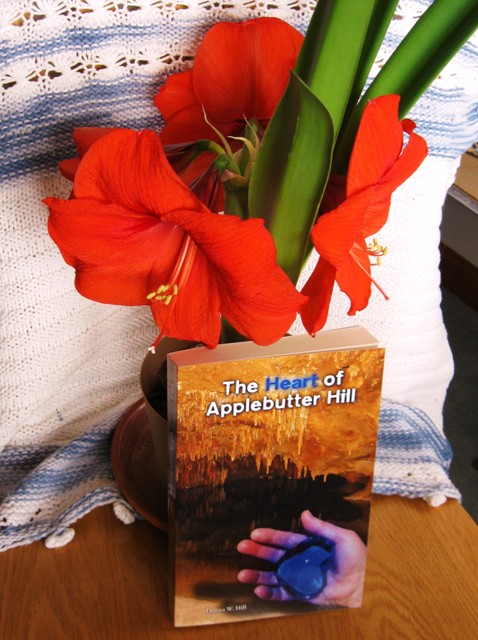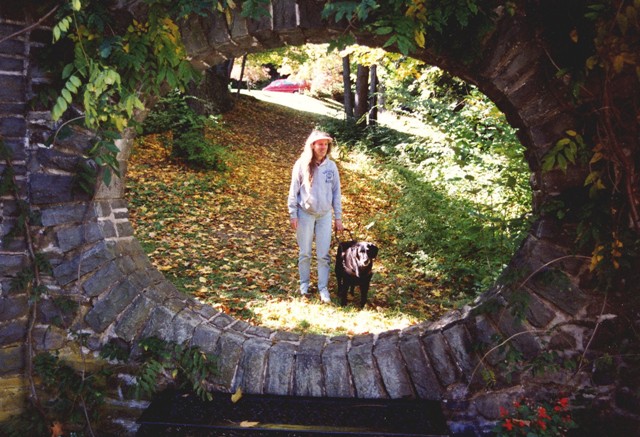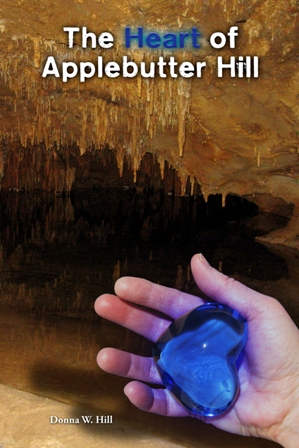As a member of various blindness, advocacy and guide dog organizations, it’s not uncommon to come across a request from a college student to take a survey on blindness, and I’m always happy to participate. Rarely, however, (in fact, never) have I run across one with the depth of thought displayed by Drexel student Nora Goldberg. If you’re blind or visually impaired, Nora would appreciate your thoughts, and she has offline options, though this form is accessible. Act soon, though, her assignment’s due the end of this week. http://goo.gl/UBHm7x
One of Nora’s questions is: “Do you feel as though you have the same rights, privileges and freedoms as people who are sighted? Please explain.” This one really pushed my buttons. No one ever asked me that. The answer is no, and the explanation took me all afternoon. So, at the risk of revealing too much about my inner psyche, I thought I’d share my response.
An Author’s Background Vis-à-vis Equal Rights
At 65, I have tried to be a useful member of society, giving of my time and talent, but despite having some accomplishments (such as 3 recordings of original music, many articles on blindness issues, a self-published novel and scores of recommendations for my school programs and writing, I do not feel valued by my community. Even people who seem to enjoy my company do not reach out to me as friends.

When I tried to get a publisher/agent for my novel The Heart of Applebutter Hill, I was told that the industry considers my representation of a blind girl as “unrealistic” and further explanations revealed that they are looking for fictional blind characters only in submissive, dependent roles. More unsettling than all of this is the fact that other blind women I know, who have more accomplishments and seem more integrated than I feel, talk about the same things.
When I ask audiences, they have no problems naming successful blind men. When asked to name a successful blind woman, however, the most frequent answer by far is Helen Keller. Ms. Keller died over 50 years ago. In what other minority can you find such a lack of female presence? And, what does that say about the public’s view of blindness?
ADA: Equality Under the Law?
The Americans with Disabilities Act (ADA), the federal law purporting to ensure our rights , has been around for a quarter century. Despite advances in technology and the achievements of some blind individuals, blind people are still the minority with the greatest gap between natural abilities (intelligence, talent and willingness to work) on one hand and the common measures of success and inclusion (employment, income, social integration) on the other.
The ADA and other disability laws are “complaint-driven” laws forcing the victims of discrimination to file, investigate and prepare cases. No policeman interviews you, writes up a report and recommends it for prosecution. A fender-bender on the highway may make you lose a few days of work, but a cop’s there in minutes administering breathalyzer tests and checking licenses. Having schools who won’t provide accessible classroom materials, being cold-shouldered by a potential boss who can’t get over the fact that you got to the interview “all by yourself” or having cabs, restaurants and motels refuse you service because you have a guide dog can damage your life for years to come.
ADA Mediation Process: Something Less Than Justice
ADA complaints often end up years later with the business who engaged in the discrimination making a “mediated” settlement in which they don’t even admit to any wrongdoing. Employees at restaurants and motels who refused a guide dog handler access to the business are usually long since gone before an ADA complaint even begins the DOJ filing process.

In 2012, after 42 years of using a guide dog and struggling with access issues, I finally filed a complaint against a motel for throwing us out of a room we had already occupied, because they thought the law gave them the authority to confine us to the “pets only” rooms. The fact that many people don’t understand that this is discrimination and don’t even ask why it’s not acceptable, points to the failure of the “do-it-yourself mandate” the ADA has given us. The mediated settlement doesn’t give me the right to even tell you what motel it was.
Access to Our Digital World Denied to Blind Americans
The other side of this is digital accessibility. The technology for it has been around for years, is a matter of 1s and 0s and works when designers choose to use it. Digital accessibility is to blind people what wheelchair ramps, elevators and accessible bathrooms are to people with physical disabilities. The difference is that there is a review process for brick and mortar structures which ensures that a certain amount of physical access be built in right on the drawing board.
For digital access to websites, software, controls on household and office equipment, there is no such process. “Education” and the good will of the public were supposed to bring digital access to blind people, but the problem is getting worse, not better.
The November, 2011 issue of the First Monday Journal (University of Illinois, Chicago) features an academic study explaining the issues and recommending solutions.
“Retrofitting accessibility: The legal inequality of after-the-fact online access for persons with disabilities in the United States” by Brian Wentz, Paul T. Jaeger, and Jonathan Lazar http://www.uic.edu/htbin/cgiwrap/bin/ojs/index.php/fm/article/view/3666/3077
It concludes that fully 80% of the internet is inaccessible, and it warns that disability laws are creating a “separate but unequal” online environment and a “permanent underclass.”
Snapshot of Accessibility Issues Faced by Blind Author
I am forever writing to websites about access issues that make it impossible for me to independently pursue my career and personal goals. Of the 3 most highly rated security programs (Kaspersky, Bitdefender & Norton), only Norton has any measure of accessibility. The digital webcam which my husband bought so I could do video conferences and interviews has a series of onscreen buttons to turn it on and off, etc. None is accessible. Social media sites like Linked In, Facebook, Twitter and Google+, all of which I use to promote my book, have access issues that make them either more difficult to use or which prevent people like myself who use screen readers from taking advantage of some of their functions
. My fellow indie authors at Smashwords, which distributes eBook versions of my novel The Heart of Applebutter Hill, received a free year’s subscription to the online library Scribd, which carries our books. They can read one another’s work, network and advance their writing careers for free for one year. I can’t participate, because when Scribd set up their platform, they didn’t bother using the methods which would have made it accessible. Our US Congressman has an inaccessible online contact form. I could go on and on.
There is a “separate but equal” aspect to the laws applying to people who are blind. This is a “remedy” which as we know was declared unconstitutional in racial discrimination by the Supreme Court decades ago, but it is apparently just fine for people with disabilities.
Are Equal Rights Possible When People are Considered “Fundamentally Different?
Why is all of this true? I suspect the answer lies hidden in an old survey. In the early ’90s, the Louis Harris organization conducted a survey for the National Organization on Disability (NOD) to determine how Americans viewed people with disabilities. I found it in a NOD pamphlet called That All May Worship and referenced it in Unopened Gifts: Tales Out of School my nonfiction booklet for communities of faith seeking to be more welcoming to people with disabilities. The survey summary states, “The public views disabled people as fundamentally different than the rest of the population, feeling admiration and pity most often. Embarrassment, apathy and fear are also common.”
“Fundamentally different.” I don’t think that’s changed much. Too many people – and they can be teachers, potential employers, medical professionals, neighbors and family members – expect that blindness must be an insurmountable barrier to success, independence and happiness. They see us as broken people to be admired for merely existing and as needing them to assume the role of care-giver or decision-maker. They do not see us as needing them to simply expect us to be equal contributors. Unless and until this changes, equality will remain just out of reach for blind Americans.
Purchase The Heart of Applebutter Hill & Help Blind Students

Amazon: http://www.amazon.com/books/dp/1483948226
CreateSpace eStore: https://www.createspace.com/4000964
E-book Versions
Kindle: http://www.amazon.com/dp/B00CNG6DDM
Nook Book URL: http://www.barnesandnoble.com/w/the-heart-of-applebutter-hill-donna-w-hill/1115426305?ean=2940016415000&itm=1&usri=2940016415000
Apple iTunes: https://itunes.apple.com/us/book/the-heart-of-applebutter-hill/id651693834?mt=11
Smashwords (7e-book versions including .pdf, .mobi (Kindle) & .epub (Nook, Apple, Sony, Blio, Kobo, etc.): http://www.smashwords.com/books/view/313071?ref=DonnaWHill
Outside the US
Amazon Canada (print & Kindle): http://www.amazon.ca/The-Heart-Applebutter-Hill-ebook/dp/B00CNG6DDM
Amazon UK (print& Kindle) http://www.amazon.co.uk/The-Heart-Applebutter-Hill-Donna-ebook/dp/B00CNG6DDM/ref=dp_kinw_strp_1
Accessible versions for readers with print disabilities
Bookshare: http://www.bookshare.org/browse/book/639304
A Request from Donna
After you’ve read The Heart of Applebutter Hill, please rate it and leave a review on the site where you purchased the book. Thank you for your interest and support.

Reblogged this on wwannwrites.
LikeLiked by 1 person
Thanks:)
LikeLiked by 1 person
Thanks for sharing this at wwannwrites! It’s much appreciated.
LikeLike
Reblogged this on Campbells World.
LikeLiked by 1 person
Patty, thanks so much for sharing this post with your friends at Campbell’s World. I hadn’t read it for quite a while. I wish it didn’t resonate as much now as it did then, but it’s a reminder of how much we’re up against.
LikeLike
I would say all things considered we’ve come along way. I would also say that we have a long way to go.
LikeLike
Indeed.
LikeLiked by 1 person